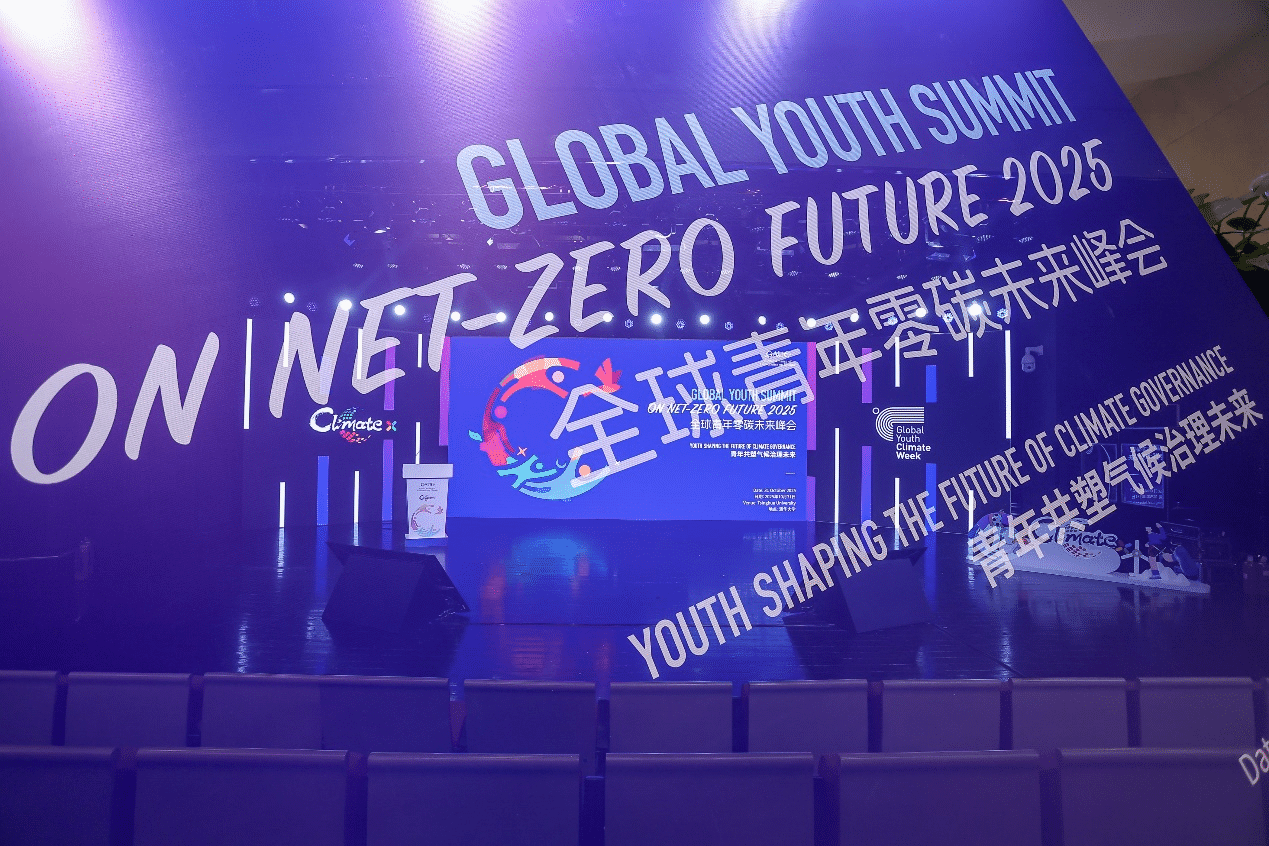
The Fifth Global Youth Summit on Net-Zero Future was successfully hosted by the Global Alliance of Universities on Climate (GAUC) at Tsinghua University on October 31.
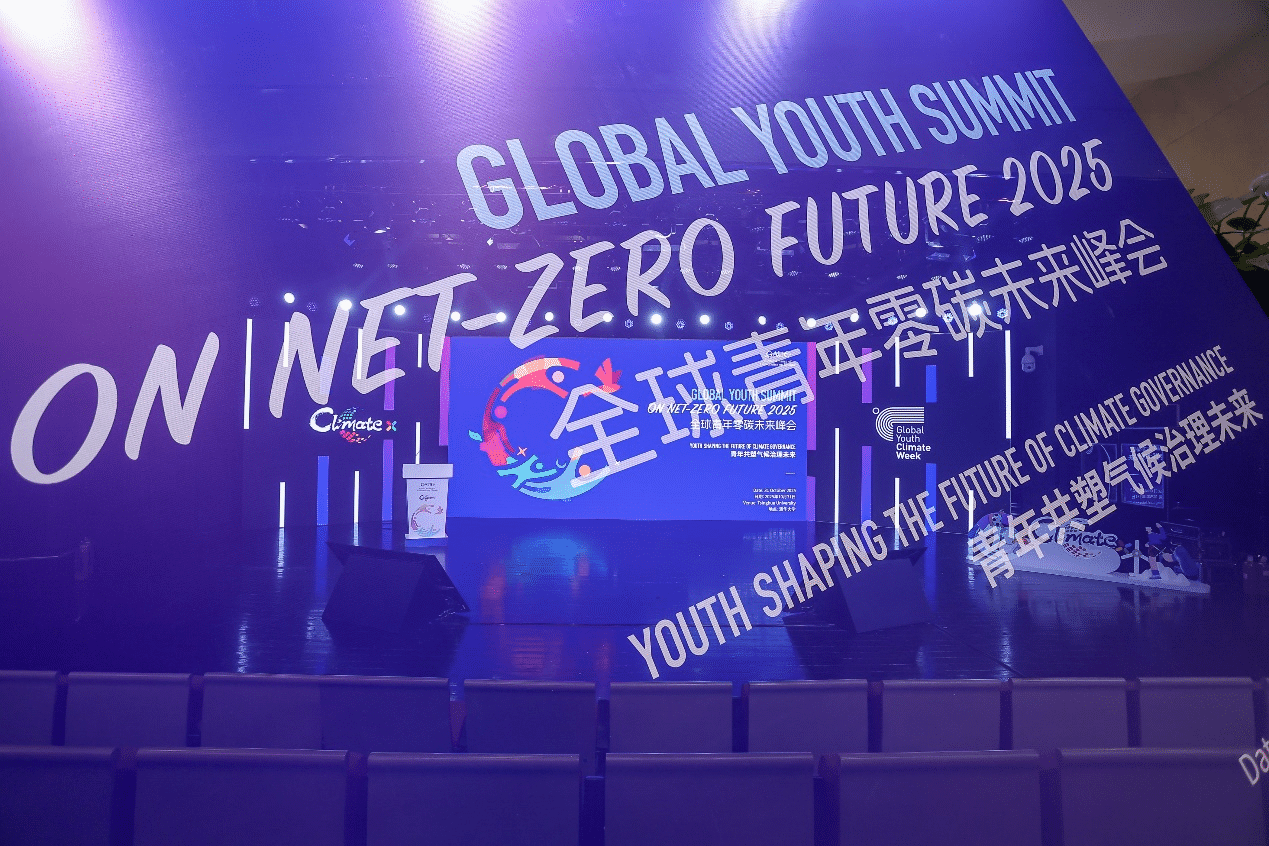
The Fifth Global Youth Summit on Net-Zero Future was successfully hosted by the Global Alliance of Universities on Climate (GAUC) at Tsinghua University on October 31. The Summit provided a dynamic platform for dialogue, inspiring global youth to engage actively in climate governance. It aimed to foster innovative solutions to combat climate change and to amplify youth voices ahead of the 30th Conference of the Parties (COP30) to the United Nations Framework Convention on Climate Change (UNFCCC) in Belém, Brazil. The event attracted an online audience of approximately 170,000 participants.
Experts and representatives from institutions including Tsinghua University, the Wuppertal Institute, the World Economic Forum’s Global Shaper Beijing Community, the Deutscher Internationaler Zusammenarbeit Gmb (GIZ), Airbus China Sustainability Team, Beijing Eco-Hub, BMW China Services Ltd., as well as youth delegates from various universities in China and abroad, attended the summit.
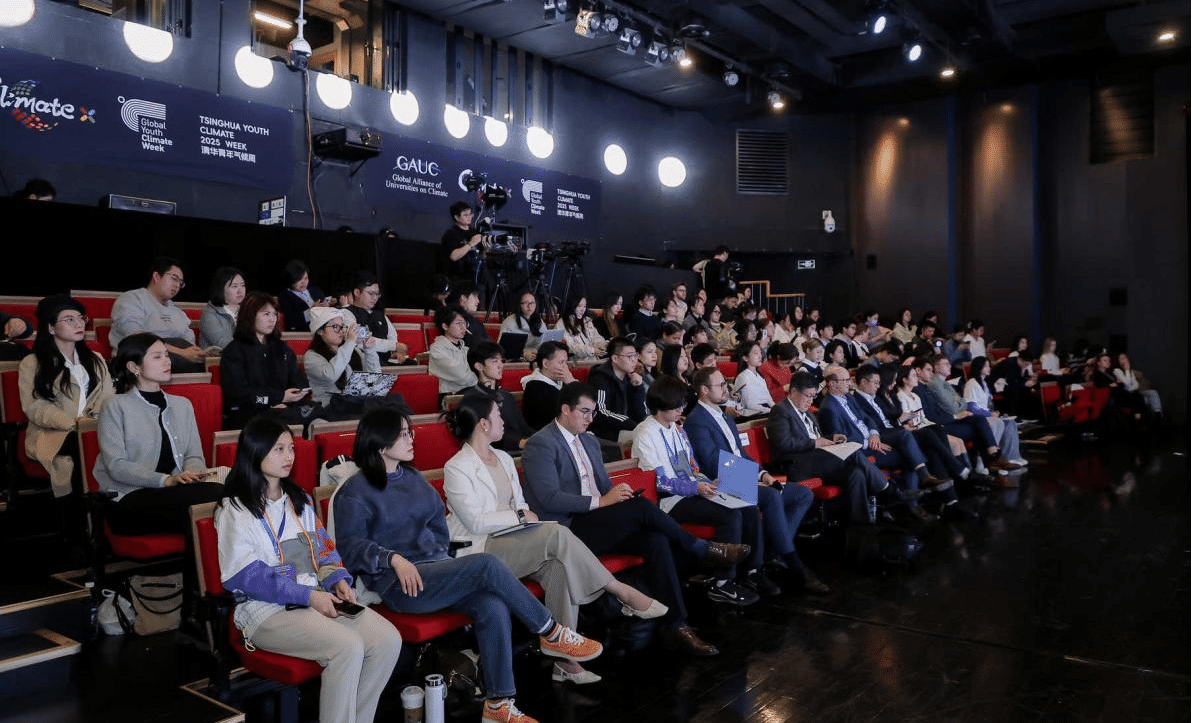
Professor Shi Zongkai, Vice Chair of the University Council of Tsinghua University, delivered the welcoming remarks, recognizing the significant contributions of youth to climate action and encouraging them to continue leading boldly and working together toward a sustainable future. He noted that, despite broad global consensus on the need to address climate change, major challenges remain in areas such as climate finance, capacity building, and technology transfer—challenges that call for stronger global partnerships and unwavering commitment. Professor Shi reaffirmed Tsinghua’s dedication to fostering international collaboration and enhancing the role of higher education in global climate governance.
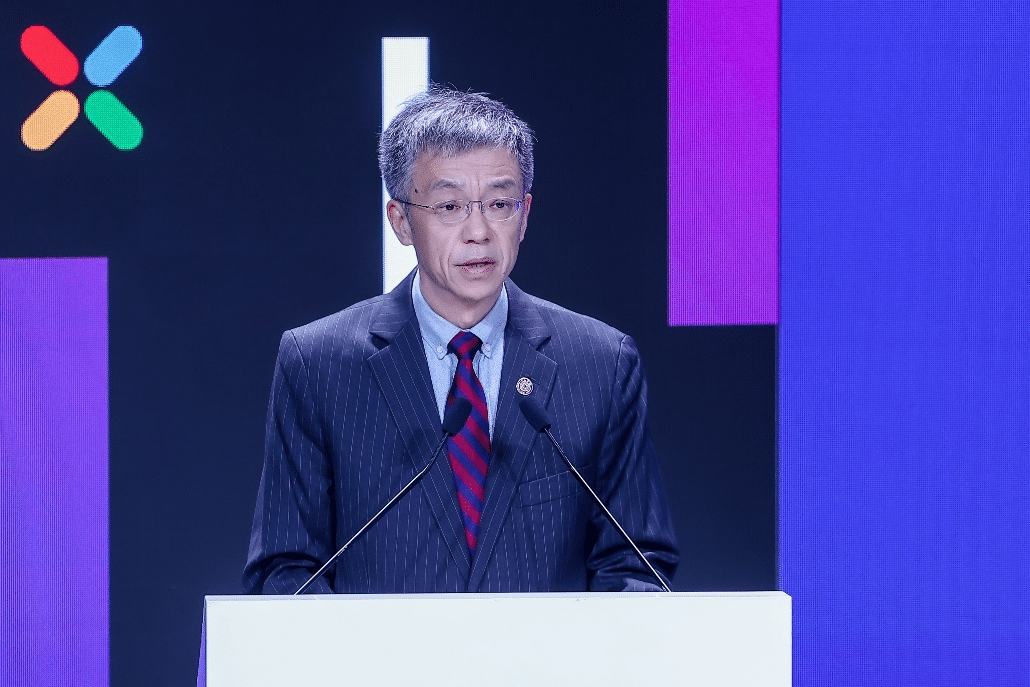
Professor Shi delivered the opening remarks
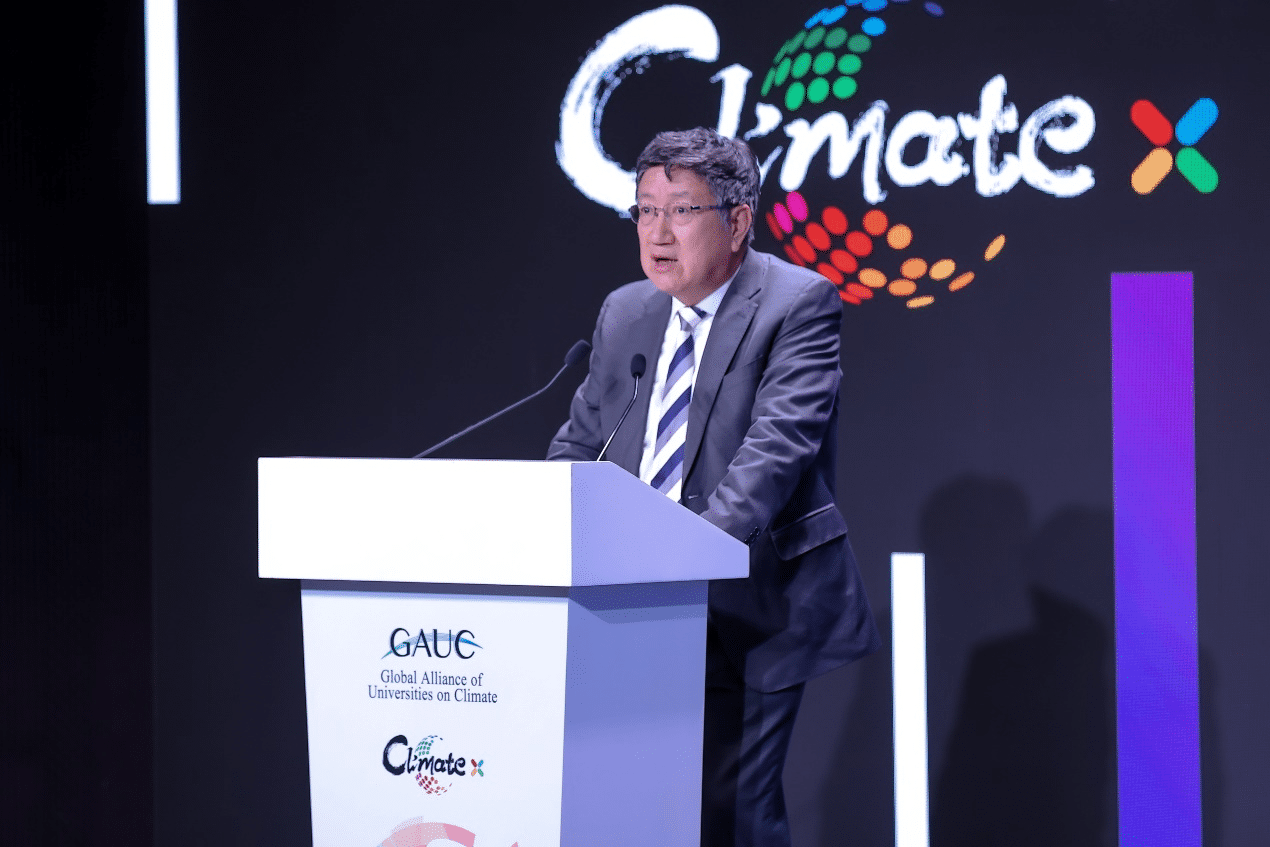
Professor Li Zheng,GAUC Secretary-General, the Dean of the Institute of Climate Change and Sustainable Development at Tsinghua University, hosted the opening remarks and keynote speech
Ms. Laurence Tubiana, President and CEO of the European Climate Foundation and COP30 Special Envoy for Europe, delivered a video address reflecting on the historic achievement of the Paris Agreement and its profound significance for global climate governance. She emphasized that climate change is no longer just a central political and economic issue, but also a moral imperative concerning the shared future of humanity. Ms. Tubiana highly commended the critical role of youth in advancing the Paris Agreement and other climate actions, calling on them to continue raising their voices and urging governments to fulfill their commitments, while promoting a sustainable transition guided by science, justice, and long-term vision.
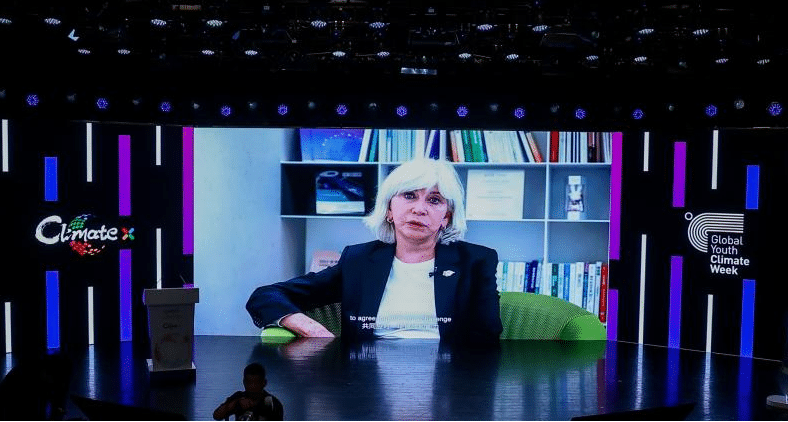
Following the welcoming remarks, Professor Peter Hennicke, former Director of the Wuppertal Institute in Germany, delivered the keynote address on the global sustainability initiative Earth4All, offering an in-depth exploration of systemic pathways toward net-zero emissions, a circular economy, and well-being for all. Professor Hennicke highlighted the severity of the current global climate crisis, noting that human activities have already breached seven planetary boundaries—including climate change, biodiversity loss, biogeochemical nitrogen and phosphorus cycles, and ocean acidification. He emphasized the need to move beyond GDP-centered development models and adopt systemic, cross-sectoral approaches over the next five years to advance energy transition, poverty alleviation, sustainable food systems, and resource circularity. Using Germany as a case study, he illustrated how highly industrialized countries can accelerate circular economy transitions while maintaining economic competitiveness, and called for strengthened Sino-German cooperation in this field. He underscored that a just transition relies not only on technological innovation but also on new lifestyles, inclusive policy design, and science-based decision-making. Concluding his address, Professor Hennicke encouraged youth to lead with action and optimism, drawing inspiration from global best practices to collectively advance toward a sustainable, equitable, and resilient future.
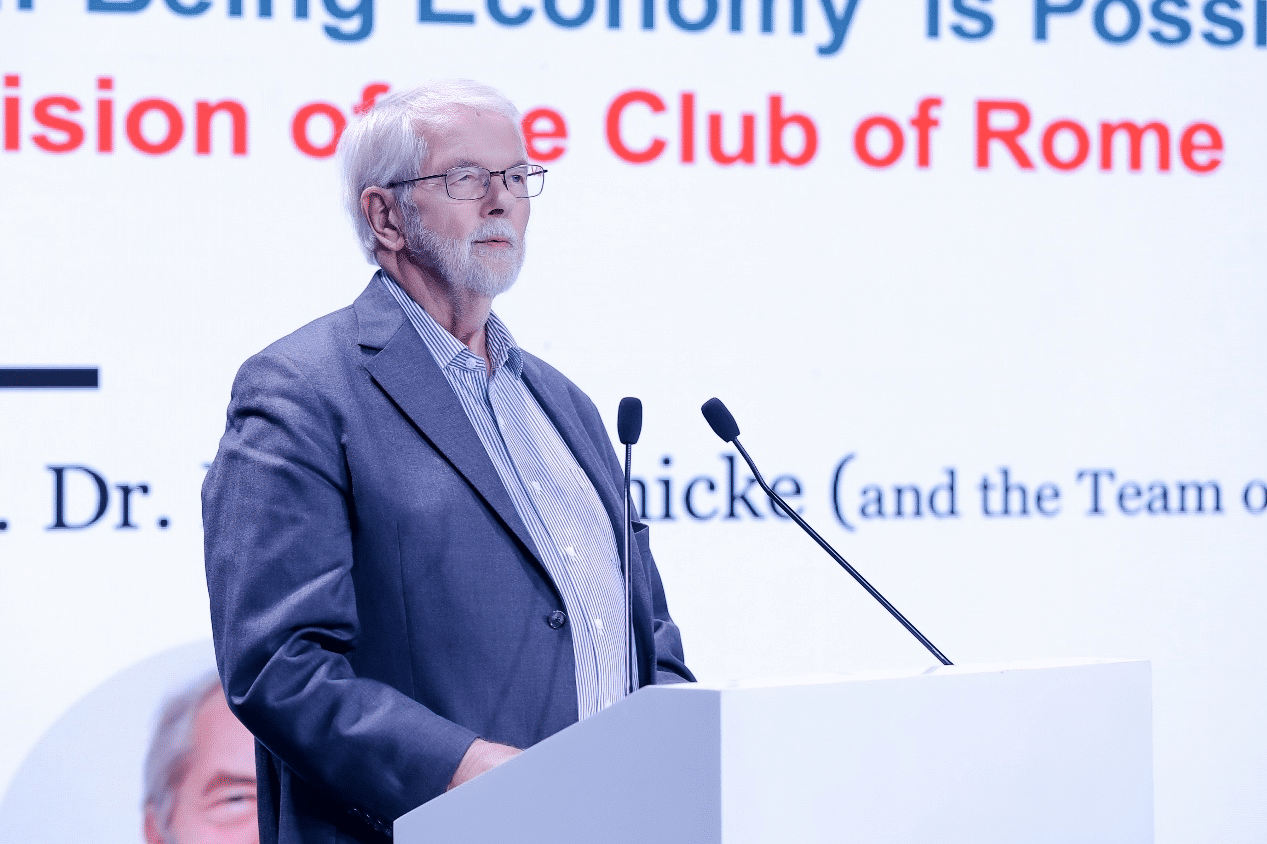
Following this, Alice Ho, Chief Youth Officer of GAUC, provided a detailed overview of the GAUC annual ‘Climate x’ Campaign. She explained that since its launch in 2022, the initiative has aimed to empower youth with climate-related knowledge, skills, and leadership opportunities. To date, young people from 79 countries have independently organized numerous activities, reaching over five million individuals worldwide.
She highlighted that in 2024, GAUC brought together a youth delegation of 28 outstanding young leaders from nine universities across ten countries to participate in COP29 in Baku, Azerbaijan. Through inspiring speeches, dialogues with global leaders, and active contributions to the international climate agenda, these youth leveraged their energy to support policy implementation. Alice also introduced the Global Youth Climate Week initiative, which has been held in over 20 countries with more than 100 events since 2022, covering topics such as youth education, clean energy, fashion, health, and disaster management. She invited young people worldwide to showcase their self-initiated innovative climate actions through Youth Climate Week, contributing their creativity and insights to global climate governance.
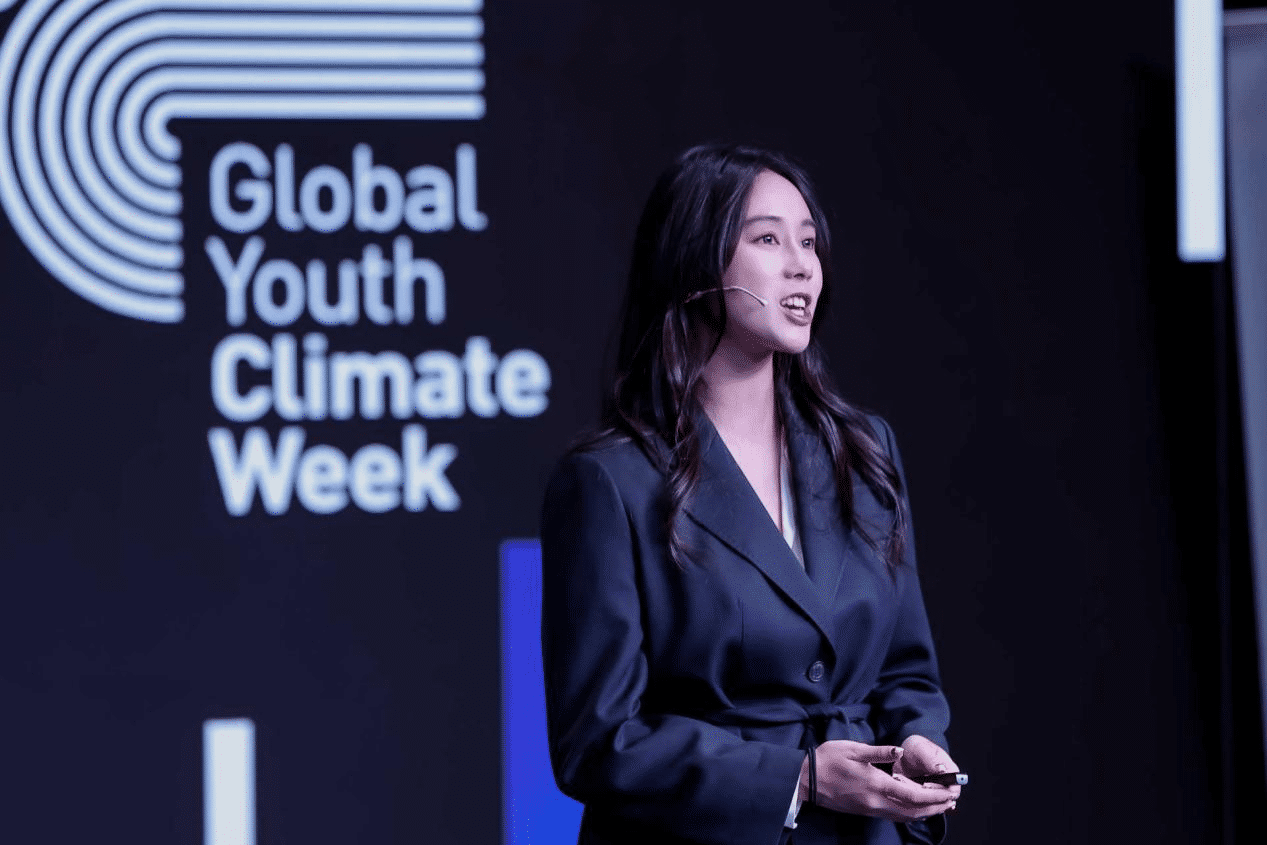
In addition, the summit released a “Messages from Youth” video, featuring several global climate leaders—including former President of Ireland Mary Robinson, COP30 Special Envoy for Latin America and the Caribbean and former UNFCCC Executive Secretary Patricia Espinosa, COP30 Special Envoy for North America and former U.S. Climate Envoy Jonathan Pershing, and Singapore Minister for Sustainability and the Environment Grace Fu—who offered encouragement and guidance to young people engaging in climate issues.
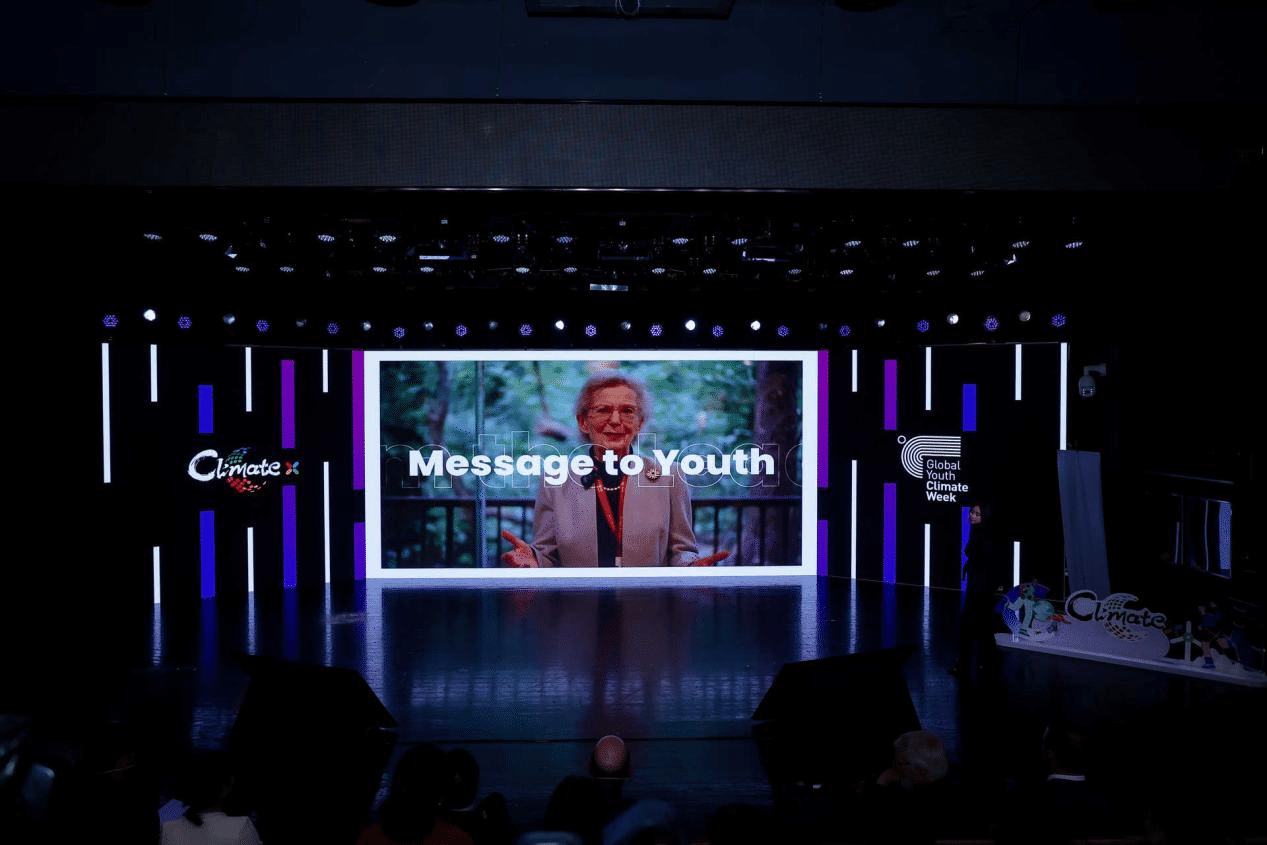
The Summit, organized by the Tsinghua University Student Net-Zero Association and its youth-led organizing committee during Tsinghua Youth Climate Week, embodied the spirit of “By Youth, For Youth.”Organizing Committee members showcased highlights from Tsinghua Youth Climate Week, including student-led activities such as the “2-Ton” Workshop and coffee-ground art projects, which brought climate goals closer to daily life and allowed participants to experience firsthand how lifestyle changes can reduce carbon emissions. The Student Net-Zero Association also collaborated with automotive companies’ sustainable supply chain teams to host engaging workshops, helping participants explore practical ways to enhance industrial recycling. In partnership with the university’s dormitory management, organizers ran a sustainable market during the Climate Week and plan to expand future activities, offering even more creative and impactful experiences.
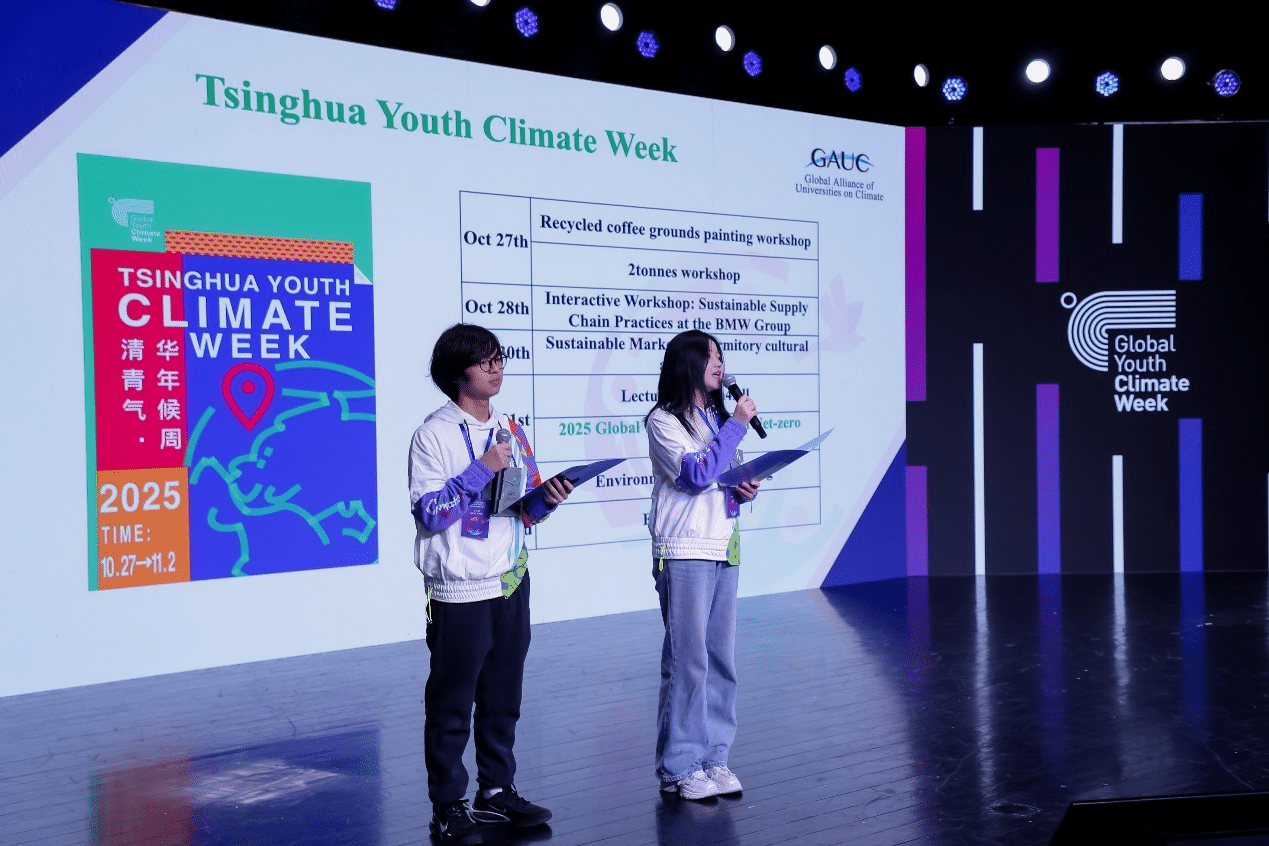
The “Youth Climate Talk” was a highlight of the Summit, featuring industry experts and youth representatives who shared practical experiences in sustainable development and offered guidance on youth engagement in climate action.
Mr. Diego Rodriguez, GAUC COP29 Youth Delegate and Chair of the 10th Tsinghua University Model Climate Change Conference of Parties (MCCCOP10), first shared his experiences at COP29. He highlighted that while youth have opportunities to speak, they are often overlooked and treated more as observers than active participants. He emphasized the significance of youth-led simulations of climate negotiations, which transform COP experiences into educational and empowering opportunities at universities, enabling youth to contribute meaningfully to climate discussions. At the 10th Tsinghua MCCCOP, youth from around the world had the opportunity to voice their perspectives and contribute to climate solutions. He encouraged young people to combine imagination with action, learning through practice and preparing to take a seat at the negotiation table in the future.
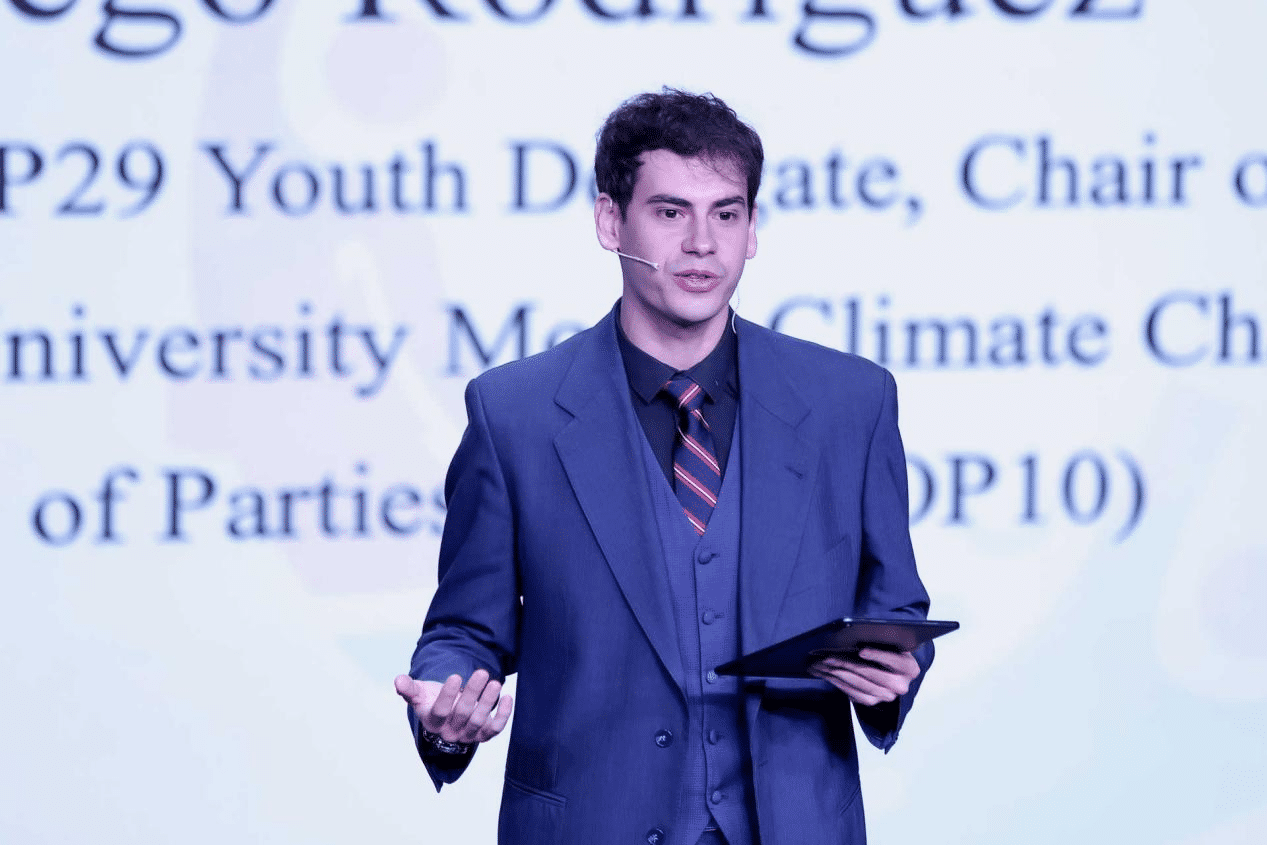
Mr. Karl Barth, Head of Sustainability Supply Chain Purchasing and Supplier Network Asia at BMW Group,shared insights into the company's approach to driving green transformation. The BMW Group is committed to achieving net zero emissions by 2050, with its 360° sustainability approach integrated across the entire value chain. By fostering close collaboration with suppliers to adopt renewable energy and low-carbon materials, BMW is accelerating decarbonization efforts throughout its supply chain. The company also incorporates circular economy principles into product design, such as using mono-material solutions to simplify disassembly and enhance the recyclability of components like bumpers.In closing, Mr. Barth emphasized shared responsibility and the power of consumer choice, encouraging young people to strengthen environmental awareness, drive innovation, and work together to shape a sustainable future.
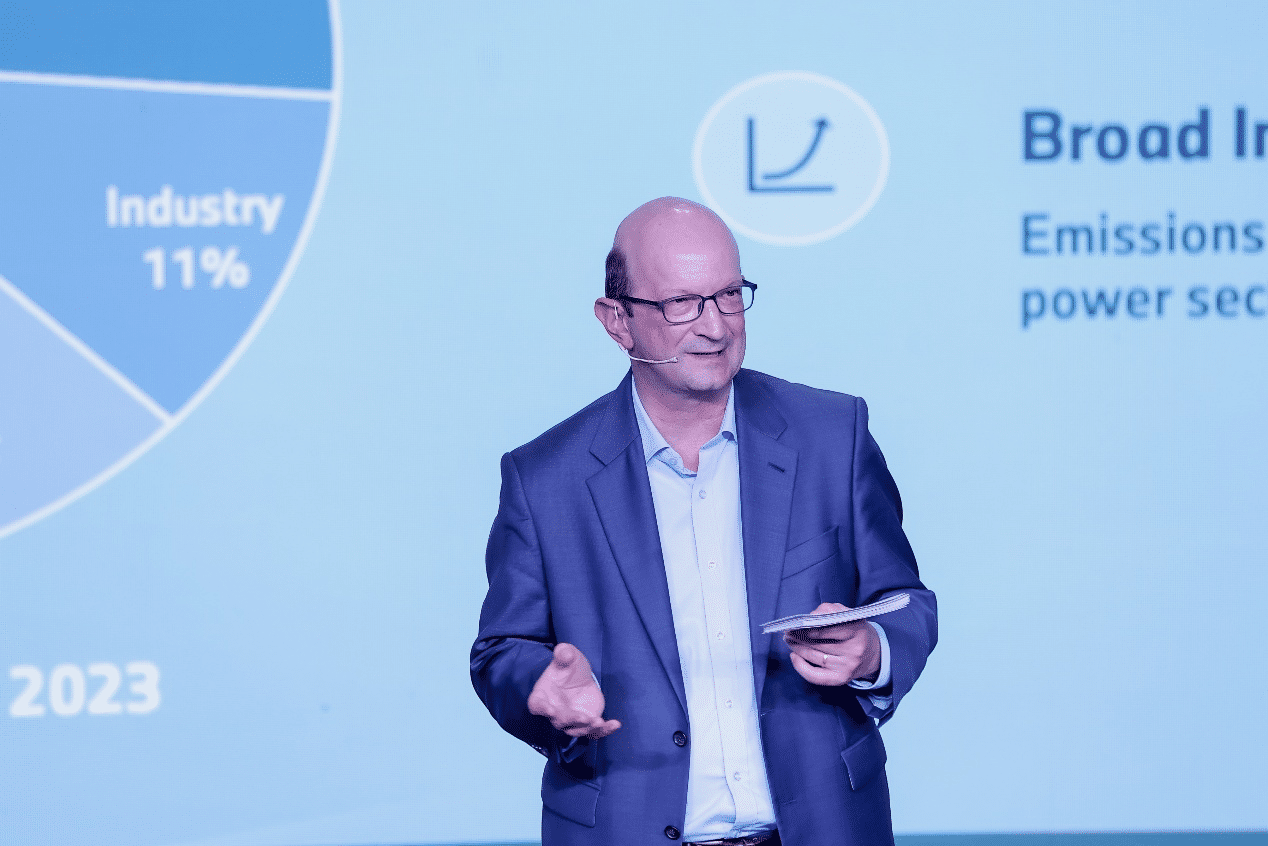
Ms. Zuo Jialu, founder of EcoVoyage, shared her climate journey. From developing an interest in climate issues to participating in significant research projects, she co-founded the Tsinghua University Student Association for a Net-zero Future and represented youth voice as a GAUC Global Ambassador at COP27. She and her team launched the EcoVoyage initiative with the support of World Economic Forum’s Global Shaper Beijing Community to promote sustainable travel and organized activities such as the ESG stand up comedy show to advocate for sustainable lifestyles. She encouraged youth to find and ignite their personal “spark”, fuel it with the ongoing action, and light up their personal sky of possibilities.
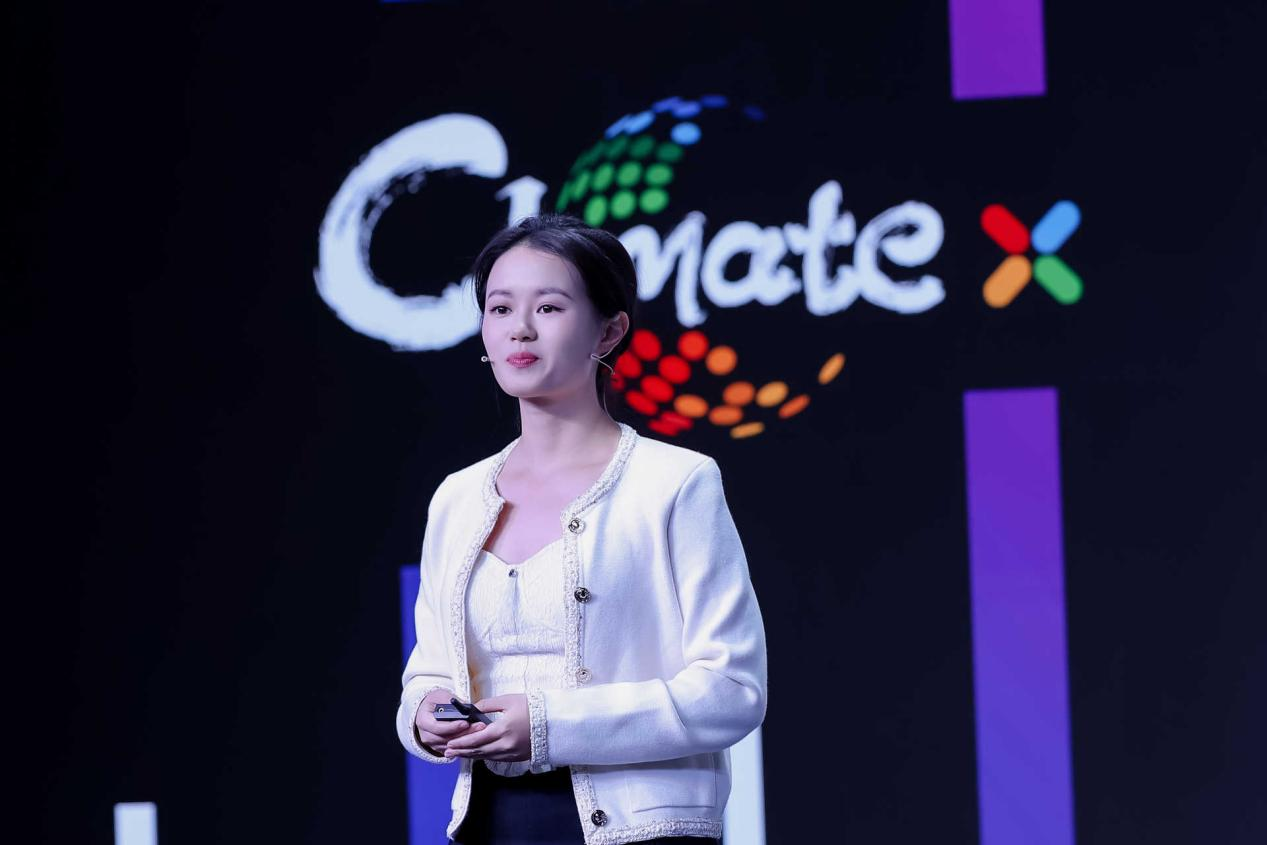
Mr. Cedric Korte, an international PhD student in the Department of Mechanical Engineering at Tsinghua University, shared his team’s agrivoltaics project in the Sertao region of Brazil. By integrating photovoltaic panels with agriculture, the project not only saves up to 30% of evaporating water but also generates clean, affordable energy and serves as a natural barrier against extreme weather. From this experience, Cedric shared three key lessons: take initiative, learn to listen, and try to find synergies. He encouraged young people to identify issues that matter to them and to have the courage to act, inspiring others with their ideas.
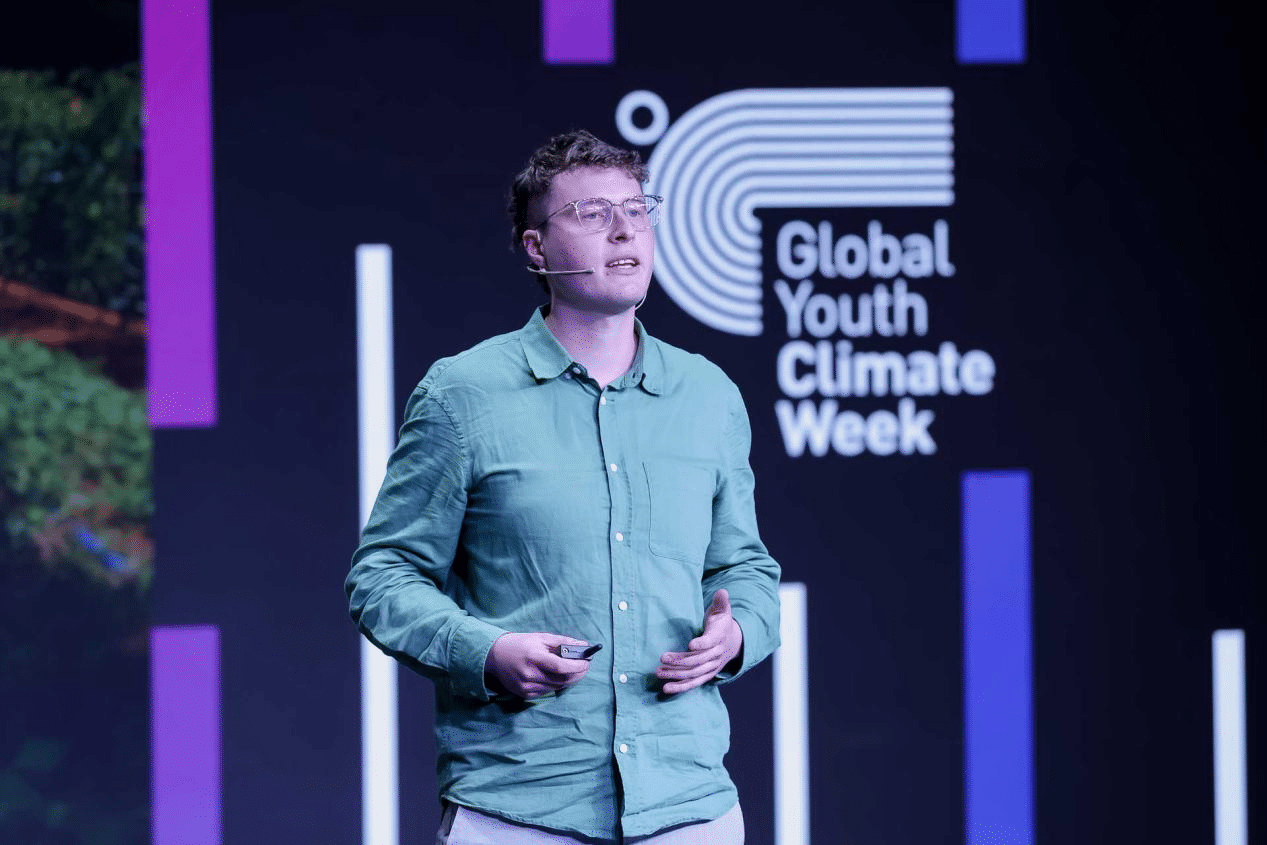
The Youth Dialogue on green transition and youth empowerment featured Associate Professor Hu Bin, Director of Global Climate Governance Research at the Institute of Climate Change and Sustainable Development, Tsinghua University; Dr. Janto Hess, Project Director of the Sino-German Cooperation on Climate Change – Climate Partnership At GIZ; Mr. Zhao Zheng from Airbus China Sustainability Team; and Mr. Ilias Laroussi, Founder of the Beijing Eco-Hub. The session was moderated by Ms. Huang Jiasheng, a graduate student from the School of Social Sciences at Tsinghua University.
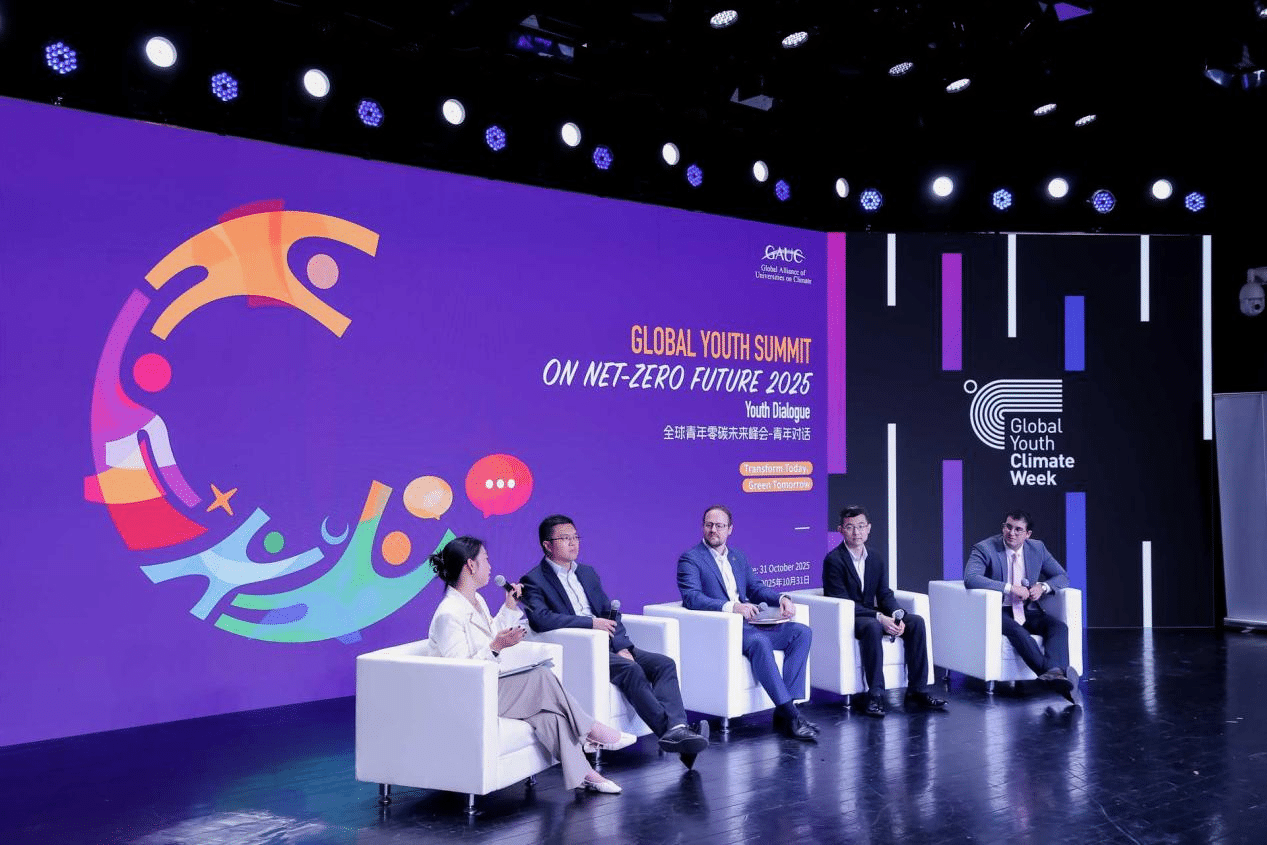
Dr. HU Bin shared China’s experience in green transition, noting that the green economy has become a key growth driver while traditional pollution control offers limited gains. Only through transforming the energy structure can lasting environmental improvement be achieved, making green development the pathway to high-quality growth. He emphasized that China’s low-carbon transition must align with national conditions, advance gradually, and balance economic growth, environmental protection, and social welfare. Market mechanisms and innovative finance should be leveraged to ensure a smooth transition.
Dr. Hu highlighted the role of universities in enabling students to link expertise with climate action and broaden horizons through international collaboration. Citing the climate summer school between Tsinghua and Technical University of Munich, he noted that exchange fosters mutual learning and trust. He concluded by encouraging young people to strengthen expertise, pursue innovation, and become communicators and practitioners of climate action, contributing wisdom and commitment to global climate governance.
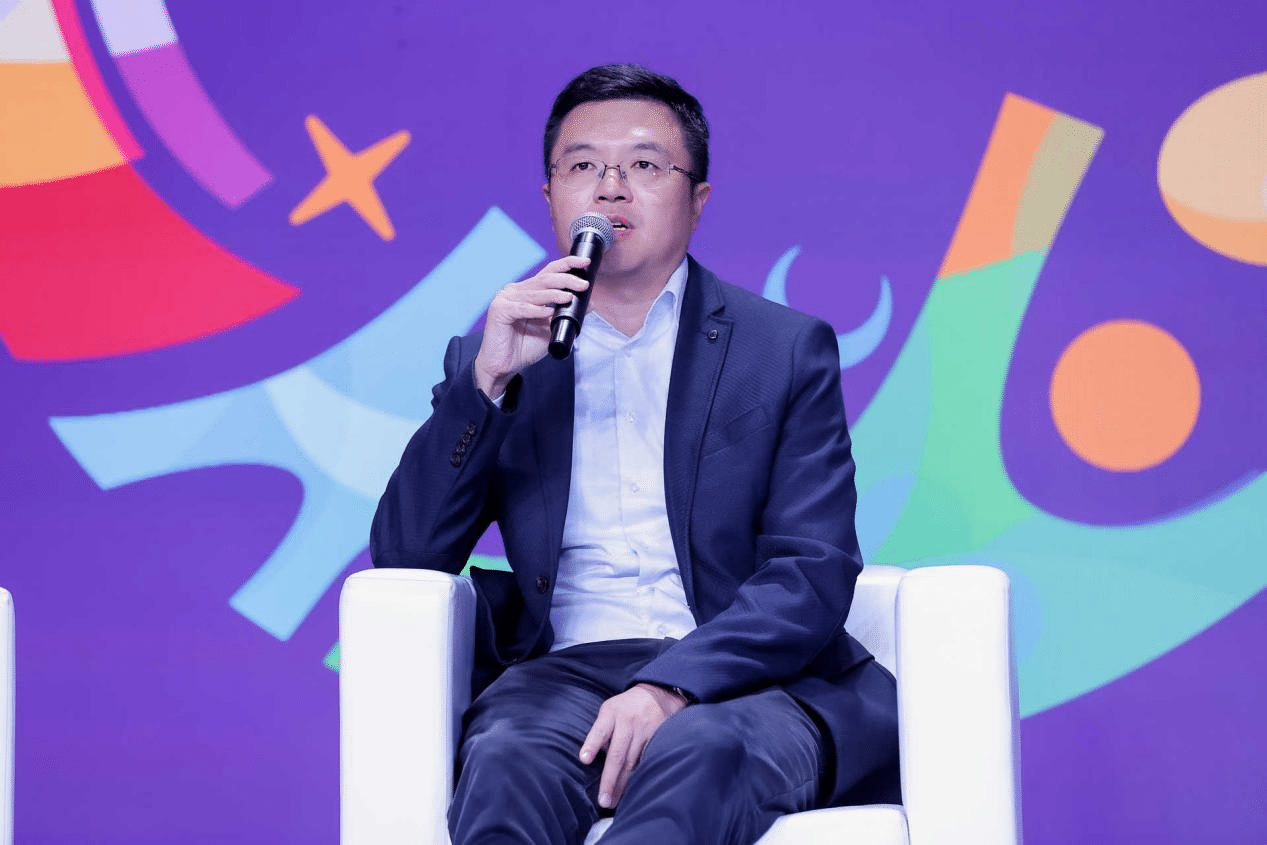
Dr. Janto Hess highlighted the critical importance of identifying and aligning the interests of various stakeholders in sustainable development cooperation and negotiations. He stressed the need for corporations and private actors to have predictable carbon pricing mechanisms that incentivize investments in green solutions, without undermining their competitiveness. For youth, Dr. Hess emphasized the value of early engagement in climate-related projects and negotiations, urging them to seize opportunities offered by institutions like the Climate Tracker, GIZ, and UNDP’s Youth4Climate initiative to gain experience and build their capabilities.
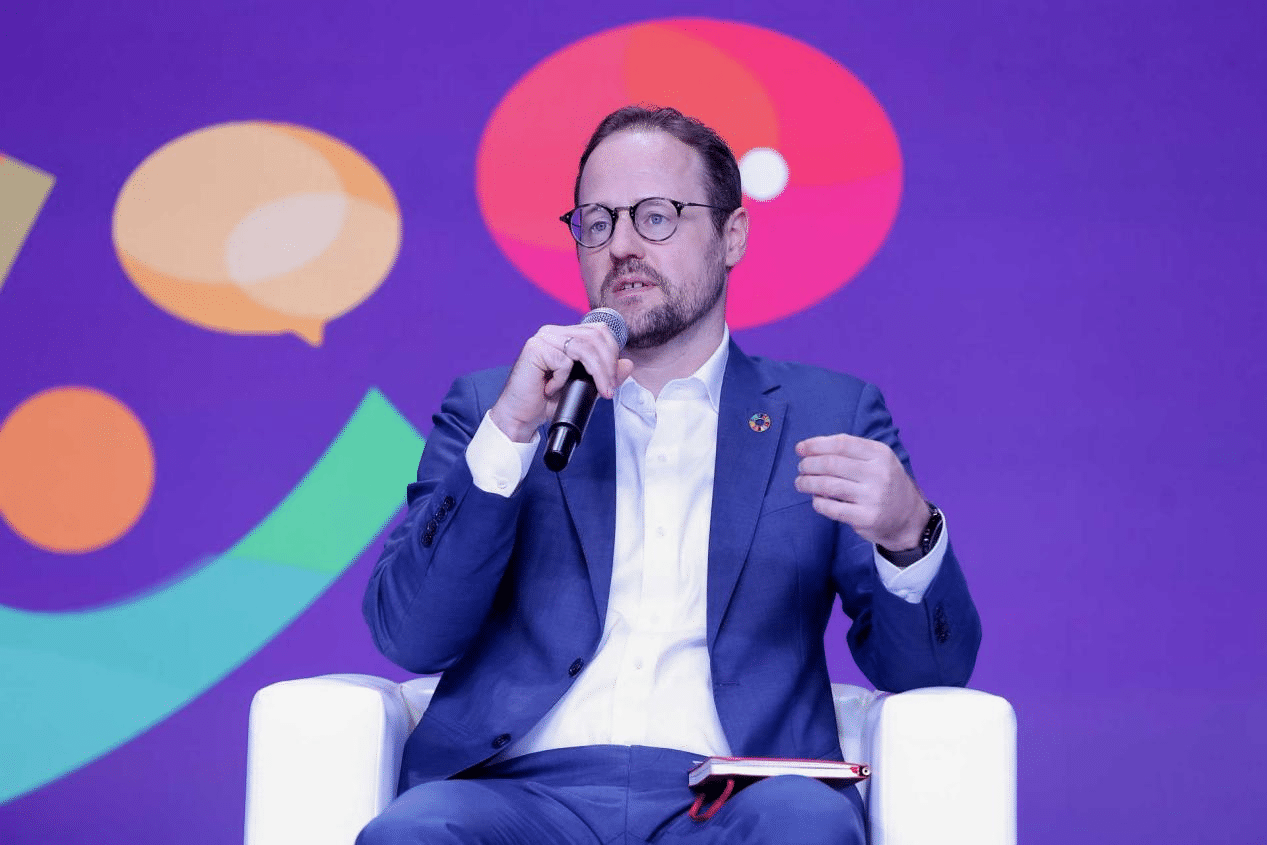
Mr. Ilias Laroussi highlighted two major challenges in translating sustainability into business practice: gaps in technology and talent, exemplified by introducing Chinese electric vehicle companies into Morocco, and cultural differences, as experienced in sustainable agriculture projects across China. He emphasized that green transition and cross-national cooperation remain significant challenges. For youth capacity building, he encouraged stepping out of comfort zones, organizing activities to enhance efficiency and impact, improving climate literacy, engaging with research, and leveraging artificial intelligence to become active participants in the sustainability ecosystem.
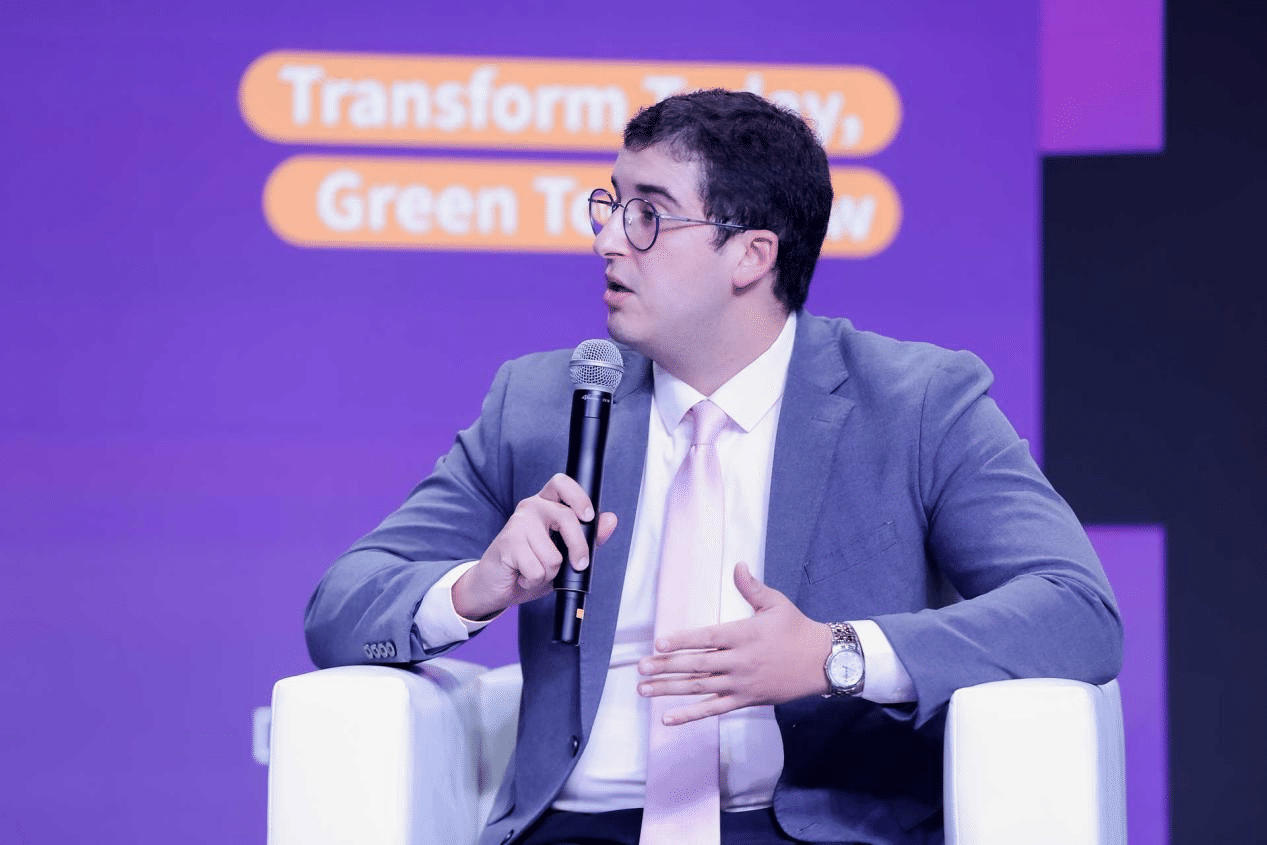
Mr. Zhao Zheng shared how Airbus integrates sustainability into its production and operations. He introduced the high-efficiency aircraft A320neo, A330neo, which improves fuel efficiency and reduces emissions; four major factories in Beijing, Tianjin, Chengdu, and Harbin now use 100% green electricity. Airbus also innovates in material use and recycling, establishing a lifecycle service center thatrecovers around 90 percent of the aircraft total weight. , promoting circular economy in aviation. Drawing on his experience, Mr. Zhao explained the core responsibilities of sustainability or ESG roles across three dimensions: compliance, value creation, and social impact. He stressed that genuine sustainability balances economic benefits with social responsibility, encouraging youth to innovate and take action to advance low-carbon transformation and contribute to global net-zero goals.
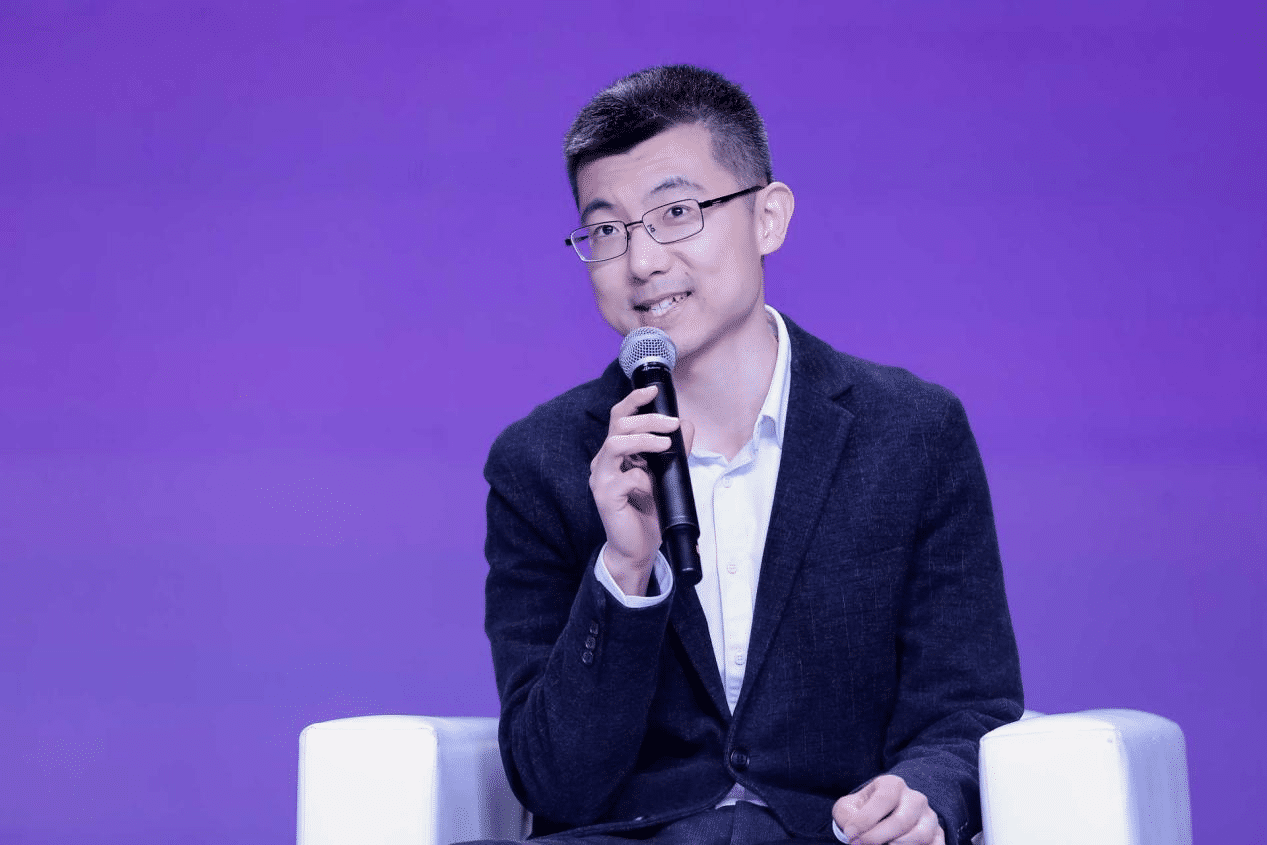
At the conclusion of the session, panelists offered practical advice for youth engagement: build strong professional networks, develop skills that cannot be easily replaced, innovate in business and technology while securing necessary resources, remain optimistic and solution-oriented when facing challenges, and promote international cooperation to engage the global community in climate action.
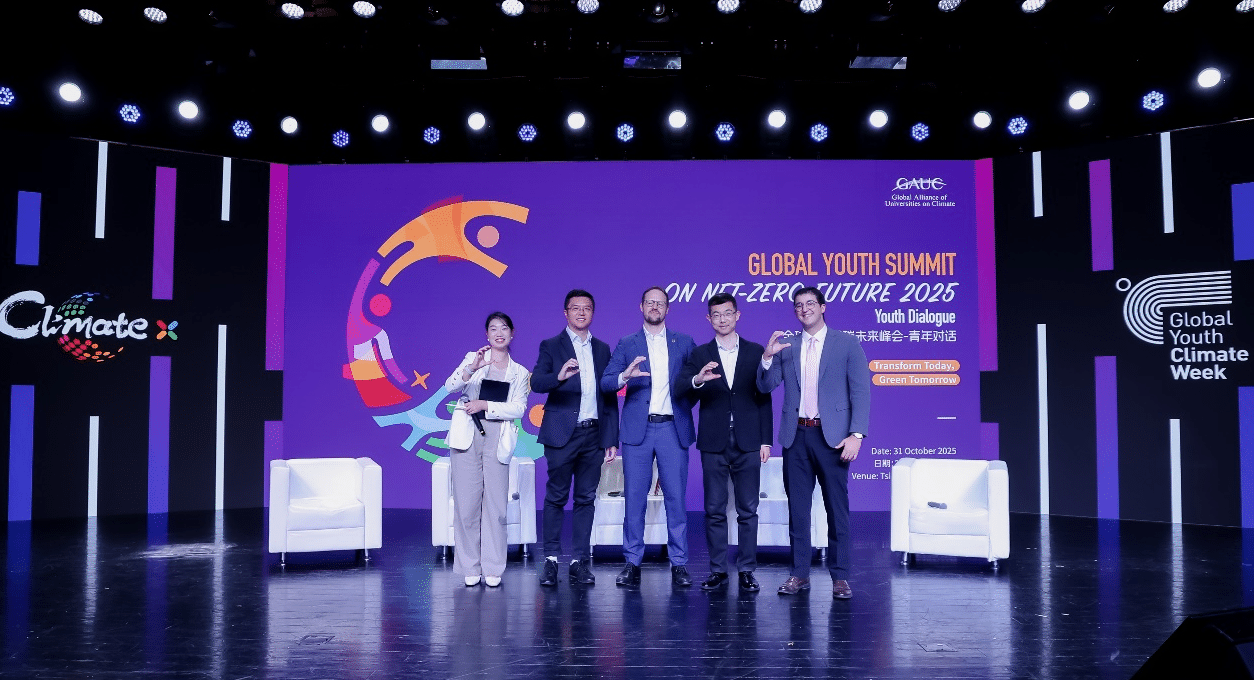
The Summit brought together youth organizers and participants from universities around the world, showcasing the critical role of youth in advancing global climate governance, fostering international collaboration, and exploring innovative solutions. It encouraged youth to take this experience as a starting point to lead in daily life, embrace responsibility in tackling climate change, and continue contributing to global climate action.
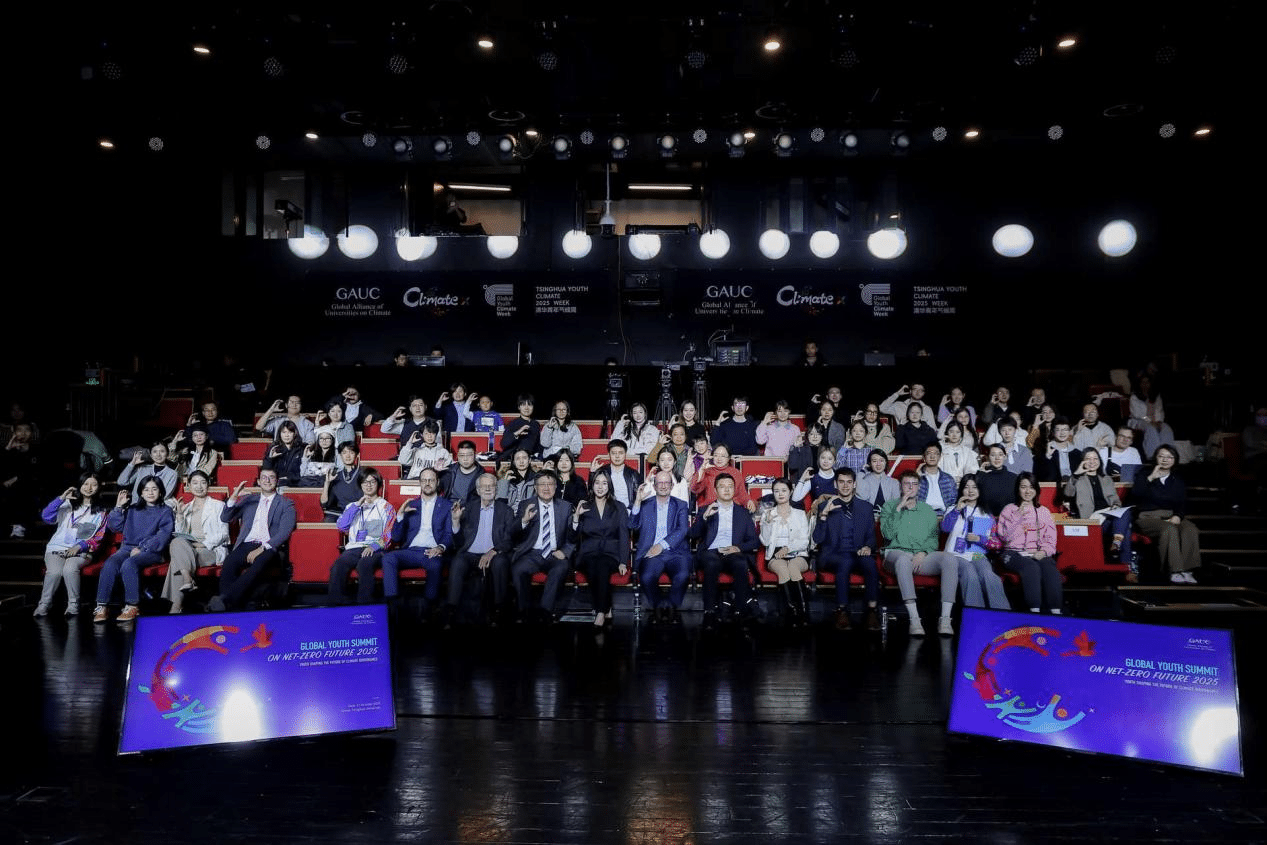
- END -
